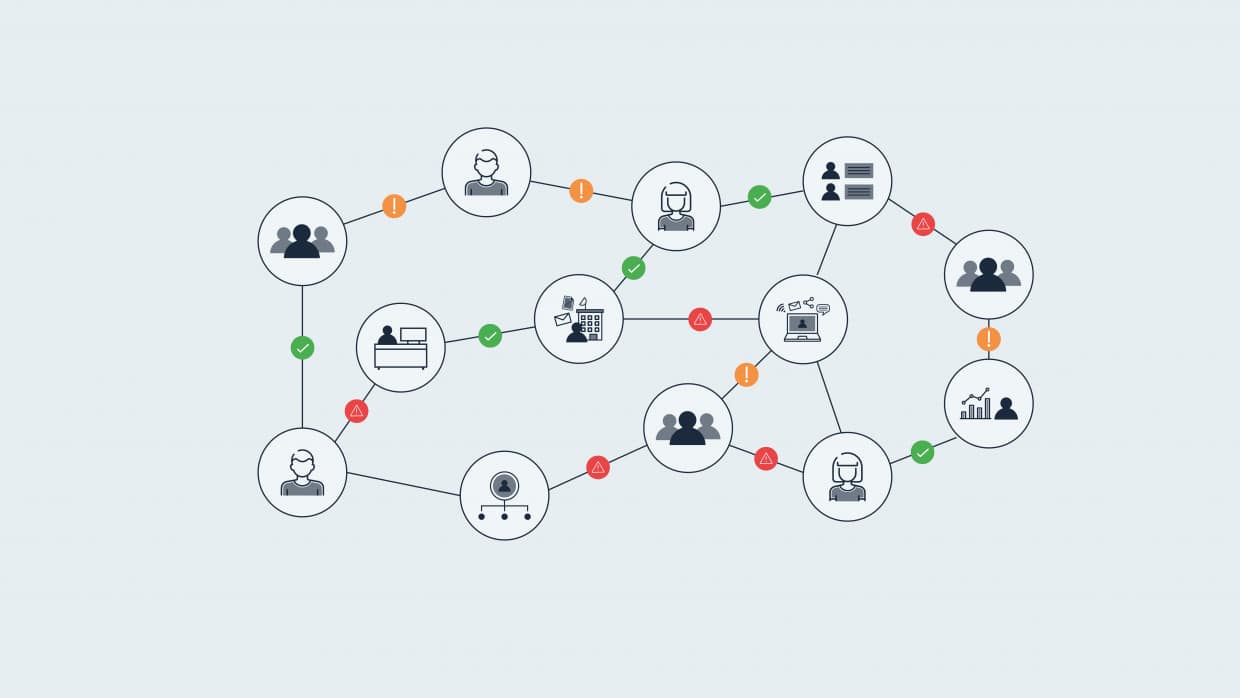-
The ongoing coronavirus pandemic has highlighted the need for effective Business Continuity Management (BCM). We are all now acutely aware that an incident can strike with major repercussions and little, or no, warning. Being prepared to keep critical processes running during an incident is a must.
Business Continuity Awareness Week is an initiative by the Business Continuity Institute to increase BCM awareness and spread best practice. The 2021 event will take place between 17th and 21st May, with resources, activities and competitions to take part in.
In the spirit of BCAW, here are five business continuity considerations for every organisation.
1. Get the basics right
At its core, Business Continuity Management is a set of policies, processes and plans designed to ensure that an organisation can maintain critical operations during a disruption. BCM proactive measures are put into place prior to a disruption based on an organisation’s risk appetite and the potential threats it faces, to safeguard operations and brand reputation. BCM capabilities can be developed and increased at every organisation, using proven models and methodologies based on the International Standard for Business Continuity Management ISO 22301:2019.
Read more about the 4C methodology and why BCM is so important.
2. Engage Senior Management
The pandemic has emphasised the need for effective business continuity management, raising it up the agenda at many organisations to executive and board level. When senior management becomes more involved, and can experience the potential outcomes when the organisation is not fully prepared, they quickly understand the value of BCM, making it easier to validate BCM budgets and give it strategic priority. At 4C, we conduct exercises and workshops at the operational, tactical and strategic levels to better prepare organisations for disruption at every step of the BCM life cycle.
Find out how BillerudKorsnäs are protecting critical assets with Business and IT Continuity.
3. Utilise digital where possible
Utilising a dedicated digital tool for business continuity management – and indeed all integrated elements of operational resilience – is much more effective than relying on spreadsheets and documents. Proven BCM software will help you identify your capabilities based on critical dependencies, verify what needs to be improved and set out a prioritised roadmap for capability development. Being able to quickly create information-rich reports using intuitive displays and dashboards will also help to engage senior management (see point 2).
4. Test, learn, develop, repeat
Business Continuity Management is an ongoing process. Operations, markets and strategies change, as do all the things that can impact them. Therefore, BCM must change with them. The best way to manage this is by involving all stakeholders within the organisation that must collaborate to assure business continuity during an incident. This means holding workshops and exercises to simulate potential incidents. Finding out what worked, what didn’t, and what needs to be improved. And assessing real-life failures and success stories and learning from them.
Discover how OpenReach continued to build BCM capabilities when the pandemic struck
5. COVID-19 – it’s not too late for BCM
It’s difficult not to mention BCM and COVID-19 in the same breath when we’re still in the middle of the pandemic. For many industries, the ramifications will be felt for years to come, whether it’s dealing with post-pandemic remote working conditions or dealing with the ever-growing need for IT continuity and cyber resilience. As an advisor to the private and public sectors, we are helping many organisations to increase operational capabilities during the pandemic and beyond.
Read about our COVID-19 Services for Risk, Business Continuity and Crisis Management
-
If you need business continuity management support, whether it’s to embed BCM in your organisational culture, increase capabilities , introduce best practices, or integrate BCM with risk and crisis management, we can help. Through industry leading BCM advisory services and software, we can ensure you are better prepared for any incident, crisis, or major disruption. Contact us today to find out more .
What is Business Continuity Management?
Business Continuity Management (BCM) has moved higher and higher up the agenda of organisations since the COVID-19 pandemic. But what is Business Continuity Management and how do you make sure you get it right at your organisation?
BCM Case Studies
Priority planning in an energy crisis with a National Energy Authority
Discover how 4C is supporting Styrel to map, prioritise and protect electricity-dependent critical societal functions.
READ MORE
Creating a standardised BCM methodology with Uniper
Read how 4C created and implemented an ISO22301 standardised Business Continuity Management methodology with energy provider Uniper
READ MORE
Preparing a global manufacturer for ISO accreditation
Discover how 4C Strategies helped a global manufacturing company to prepare for ISO accreditation.
READ MORE
Expertise
Get in touch
Discover how you can build your risk, business continuity and crisis management capability with our expert services. Book a free consultation with one of our consultants to discuss your requirements.
Request a consultation











